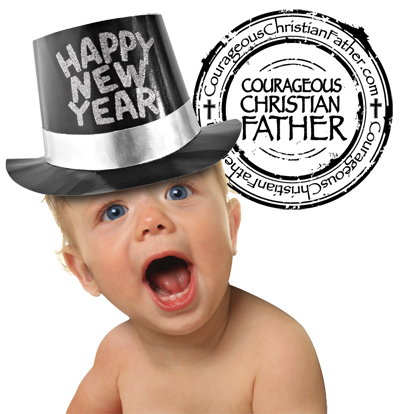Kentucky Governor Announces Requirements for Houses of Worship, Retail, Others to Reopen
Faith Leaders Support Gov. Beshear’s Plan for Reopening Houses of Worship
Visit the Governor’s Facebook page to watch today’s news conference
Kentucky Governor Announces Requirements for Houses of Worship, Retail, Others to Reopen
On Friday, May 8, 2020, Kentucky Gov. Andy Beshear outlined the requirements to begin reopening major segments of the economy and society including houses of worship, manufacturing, construction, government offices and agencies, retail and funeral services.

Also on Friday, the Kentucky Baptist Convention and the Kentucky Council of Churches voiced their support for the Governor’s guidelines to reopen places of worship on May 20, 2020.
Guidelines for Places of Worship for Kentucky
Places of worship will be expected to meet the Healthy at Work Minimum Requirements. In addition, places of worship should follow the guidelines in order to reopen and remain open:
Social Distancing
• Places of worship should, to the greatest extent practicable, continue to conduct alternative services, including tele-services, radio broadcasts, and drive-in services.
• Places of worship conducting drive-in services should ensure their congregants remain in their vehicles and not socialize through their vehicle windows, except at a distance of more than six (6) feet. Attendees should turn off their vehicles to avoid idling and protect everyone’s health.
• Places of worship conducting in-person services should limit attendance to no more than 33% of the building occupancy capacity, including clergy and staff-employees, while maintaining social distance between household units of at least six (6) feet. This means that there must be six (6) feet between individuals on a row and individuals between rows, such that a six-foot radius is maintained around all household units. A place of worship that cannot maintain this space must further reduce its occupancy capacity until it is achieved.
• Places of worship should ensure, to the greatest extent practicable, that clergy, staff- employees, volunteers and congregants wear coverings (e.g., cloth mask or bandana) over their mouths and noses while attending services.
• Places of worship should wait to reopen youth services (including, but not limited to, Sunday schools) until childcare services have reopened on June 15, 2020. Once they reopen, youth services should follow the requirements posted for childcareservices.
• Singing during services creates a higher risk of spreading infectious particles. Choirs should avoid singing. Congregants should wear face coverings and consider a greater than six feet social distance from others if they choose to sing. Houses of worship should consider alternatives to congregational singing, including by playing pre-recorded or live instrumental music (e.g. pianos and guitars – no wind instruments) during services.
• Places of worship should consider taking congregants’ temperatures and asking about signs of illness before admitting them into the place of worship. If they do take temperatures, they should consider using a non-contact thermometer or thermal imager. If a place of worship must use a standard oral/aural thermometer, consider having the congregant take their own temperature and relay the information to maintain social distancing and sanitize the thermometer after each use.
• Places of worship should not allow individuals with elevated temperatures (100.5 degrees Fahrenheit or above) or signs of illness (coughing, shortness of breath, sneezing) to attend in-person services. Houses of worship should direct those having symptoms of COVID-19, as well as people who have had close contact with a person who has symptoms like dry cough, chest tightness, and/or fever, to refrain from participating in any aspect of in- person services. Places of worship should encourage symptomatic persons to stay at home, seek immediate medical care, or get tested.
• Places of worship should use greeters to direct congregants to available masks and bulletins. Greeters should be masked, maintain social distancing, and consider wearing gloves.
• Places of worship should display markers and signage in the sanctuary/meeting space to guide social distancing.
• Places of worship should communicate with the congregation often and with clarity and transparency. Prepare the congregation for worship and for the changes that are occurring in procedures due to the national health crisis.
• Places of worship making restrooms available must ensure restrooms are only used by one person at a time and all portions that are regularly touched (e.g., door, sink, and toilet handles) are appropriately disinfected after each use.
• Places of worship conducting in-person services must, to the greatest extent practicable, provide hand sanitizer, handwashing facilities, tissues, and waste baskets in convenient locations.
• Places of worship should not provide communal food or beverages to clergy, staff- employees, volunteers, or congregants.
• Places of worship should restrict access to common areas, to the greatest extent practicable, in order to maximize social distancing and reduce congregating. These common areas include, but are not limited to, foyers, lobbies, vending areas, community and multi-purpose rooms, and event spaces.
• Because of the requirement to socially distance at least six (6) feet apart, places of worship should refrain from the practice of handshaking, handholding, or hugging.
• Places of worship should encourage those at higher risk for severe illness per CDC guidelines not to attend in-person services. These guidelines are available at: https://www.cdc.gov/coronavirus/2019-ncov/faq.html
#Higher-Risk. Instead, places of worship should, to the greatest extent practicable, provide services that are not in- person, including tele-services, drive-in services, and/or radio services for those individuals. If a house of worship is unable to provide alternative services, they should, to the greatest extent practicable, implement hours where service can be safely provided to congregants at higher risk for severe illness.
Personal Protective Equipment Requirements
• Places of worship should ensure, to the greatest extent practicable, that clergy, staff- employees, volunteers and congregants wear face coverings (e.g., cloth mask or bandana) over their mouths and noses while attending services.
Cleaning and Disinfecting Requirements
• Places of worship must ensure facilities are properly cleaned and ventilated.
• Places of worship must ensure cleaning and sanitation of frequently touched surfaces with appropriate disinfectants. Appropriate disinfectants include EPA registered household disinfectants, diluted household bleach solution, and alcohol solutions containing at least 60% alcohol. Places of worship must establish a cleaning and disinfecting process that follows CDC guidelines when any individual is identified, suspected, or confirmed as COVID-19 positive.
• Places of worship, as appropriate, must ensure they do not use cleaning procedures that could re-aerosolize infectious particles. This includes, but is not limited to, avoiding practices such as dry sweeping or use of high-pressure streams of air, water, or cleaning chemicals.
Training and Safety Requirements
• Places of worship should ensure appropriate signage is posted throughout their facilities to inform clergy, staff-employees, and congregants about good hygiene and new practices.
• Places of worship should ensure clergy, staff-employees, volunteers, and congregants are instructed to avoid touching their faces, including their eyes, noses, and mouths, particularly until after they have thoroughly washed their hands upon completing work and/or removing PPE, to the greatest extent practicable.
• Places of worship should ensure clergy, staff-employees, volunteers, and congregants are informed that they may identify and communicate potential improvements and/or concerns in order to reduce potential risk of exposure.
Gov. Beshear also announced that government offices and agencies can open on May 18 and funeral homes can open on May 20.
“I believe that the healthiest economy coming out of COVID-19 is going to be the one that can keep the virus contained while they successfully reopen,” said Gov. Beshear. “Remember, listen to your faith leader. If they tell you that they’re not ready and that they don’t think that it’s safe, then you should wait.”
Dr. Todd Gray, executive director of the Kentucky Baptist Convention, said, “I am thankful for the hard work of Gov. Beshear and his team of advisers, as well as their outreach to faith leaders, in working through the details of this plan. While Kentucky Baptists are eager to return to in-person worship they only want to do so in a safe and healthy manner. I believe they will find this plan reasonable, doable, and in the best interests of the health of their congregations.”
The Rev. Kent Gilbert, president of the Kentucky Council of Churches and pastor of Union Church in Berea, added, “We all want our families and our neighbors’ family to be and stay healthy. Churches, mosques, synagogues, temples, and other religious settings are here to support life and well-being. As supporters of #TeamKentucky, the Kentucky Council of Churches and its member bodies encourage everyone to follow these ‘Healthy at Worship’ guidelines so we can preserve the health of all. No one wants to rush back to worship just to cause more funerals. Worship is meant to be life-giving. These guidelines will help keep it that way in this time of pandemic illness.”
All businesses should follow the 10 rules of staying healthy at work as well as industry-specific guidance, which will be issued as soon as possible. See the full reopening schedule here.
Article compliments of the Kentucky Governor’s Office.
Check out Tennessee’s Churches reopening.
About the Author
Discover more from Courageous Christian Father
Subscribe to get the latest posts sent to your email.



I live in KY and our church is waiting til the 24th but we also have polled the congregation to see if they are even interested in coming back that soon. we may wait longer although we have the things in place already to open safely when that does happen. We have a large sanctuary and there are a lot of elderly in our church that cannot come so we can social distance when we do gather.
Tennessee already allowed churches to go back, our church is holding off too. Thank you for the comment. I am ready for us, the church, to get back to meeting together again. Yes, we will need to do things a lot different than we have before. Have a great day and God Bless.